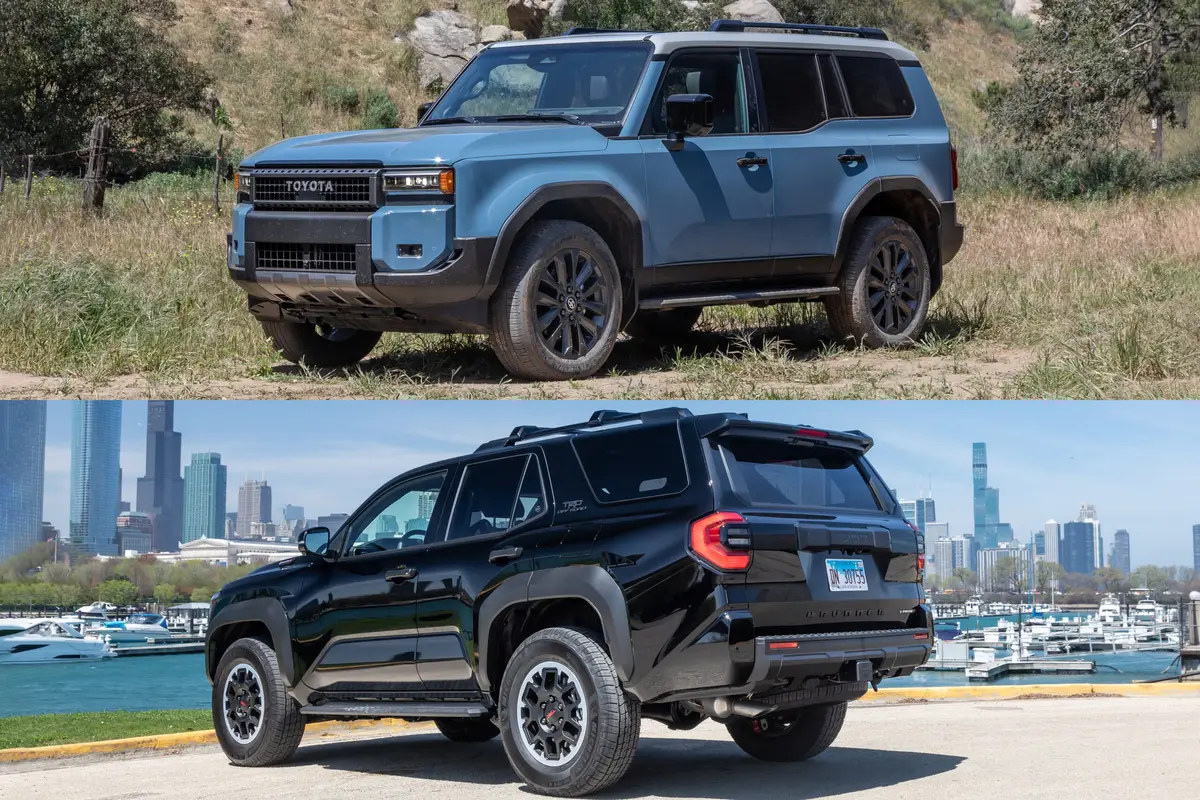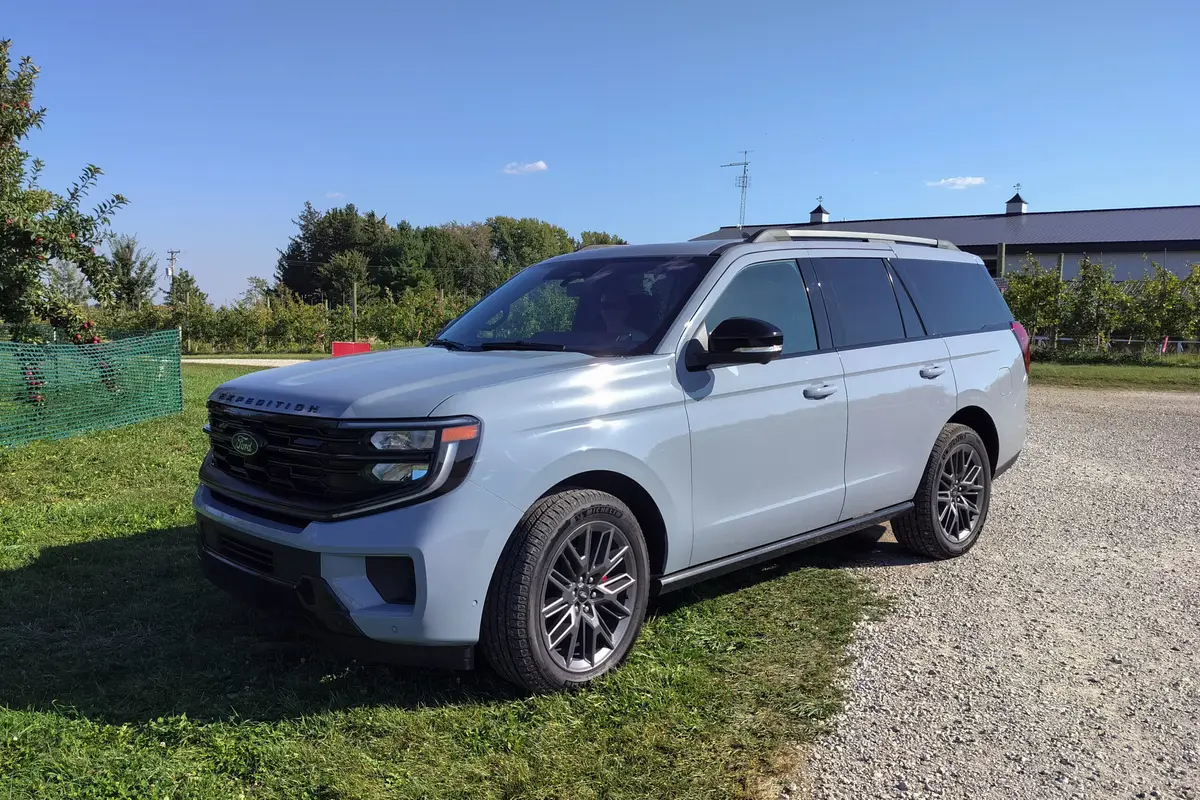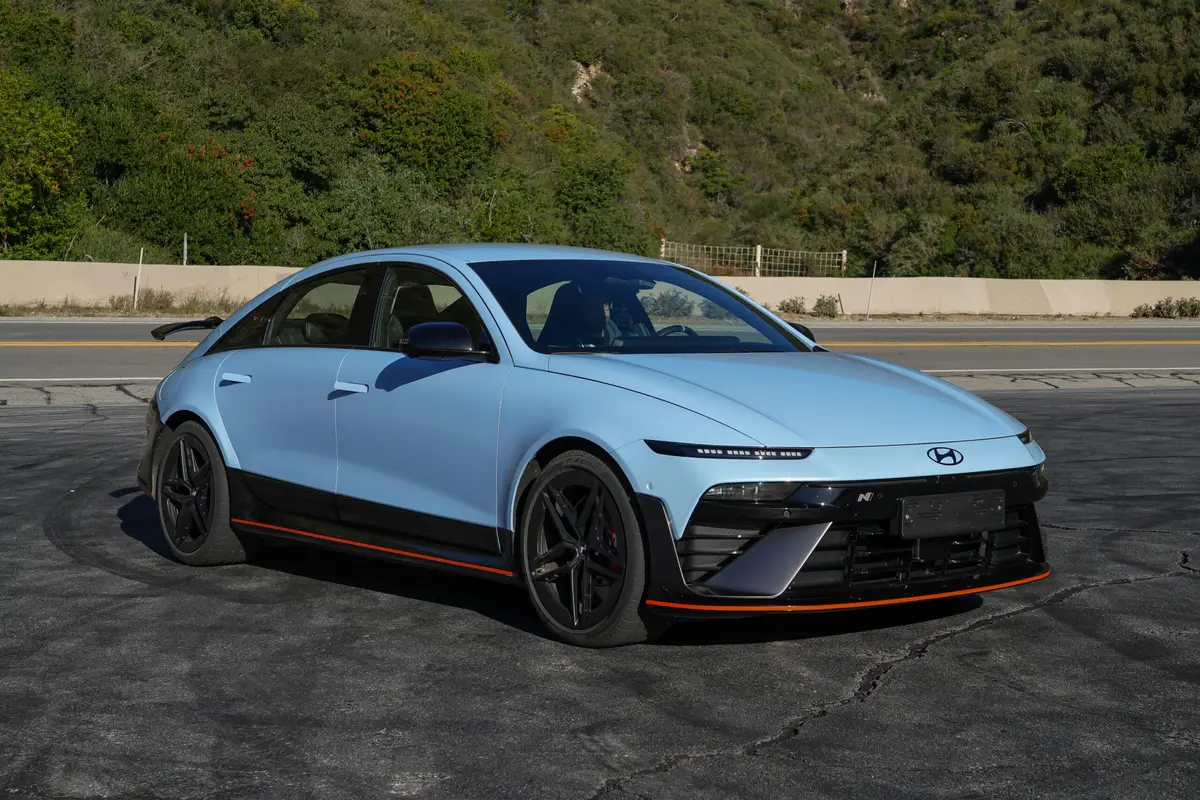Is the 2025 Subaru Ascent a Good 3-Row SUV? 5 Pros, 3 Cons
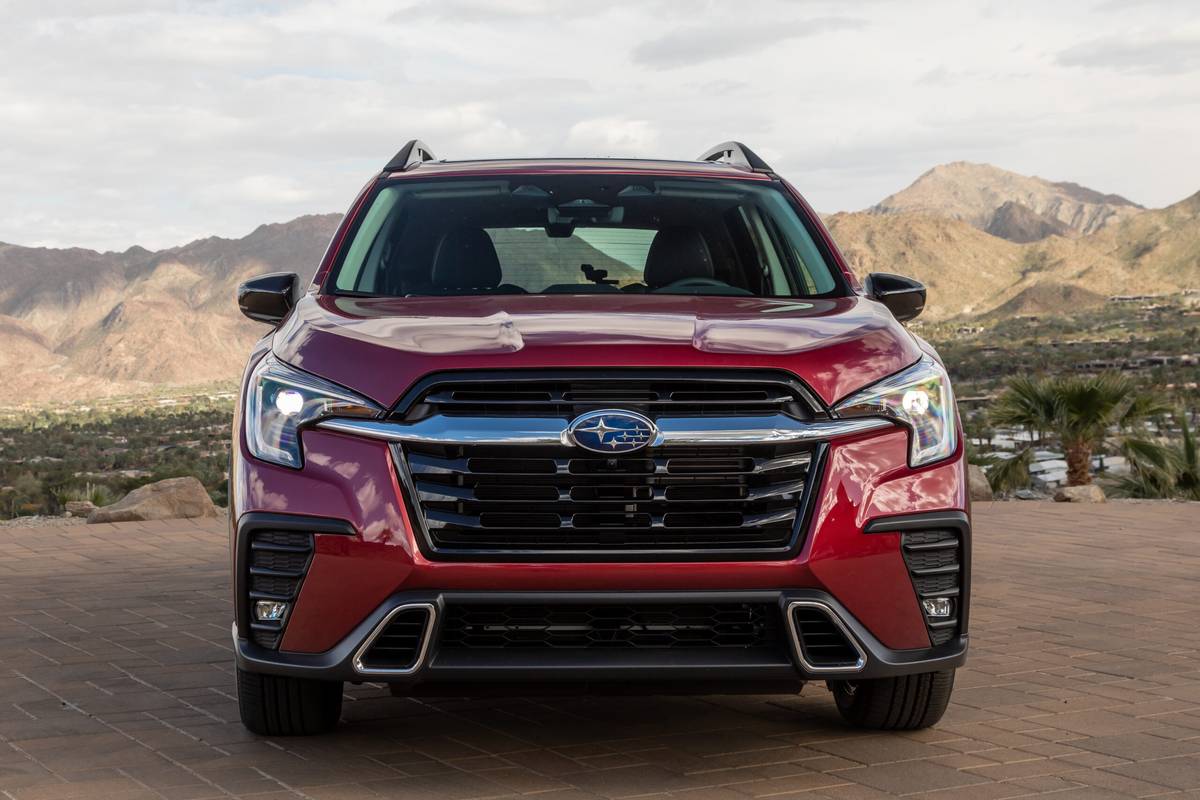
The Subaru Ascent is a mid-size SUV with three rows of seating, and it offers standard all-wheel drive in a more family-friendly package. While the Ascent remains a good choice and a strong value, the current model is showing its age and loses out to competitors offering more room and better fuel economy.
- ${price_badge()}
- ${ami_badge()}
- ${battery_badge()}${ev_report_link()}
- ${hot_car_badge()}
- ${award_badge()}
- ${cpo_badge()}
${price_badge_description}
${ami_badge_description}
The EV Battery Rating is based on this vehicle's current expected range relative to the vehicles expected range when new. ${battery_badge_text}
This vehicle is certified pre-owned, backed by a manufacturer warranty, and typically undergoes a rigorous multi-point inspection to ensure quality and reliability.
This vehicle is currently in high demand given its competitive price, desirable features, and overall condition, and may have a higher chance of selling quickly.
Shop the 2025 Subaru Ascent near you


Launched for the 2019 model year, the Ascent was welcomed by brand loyalists and others who wanted a Subaru but needed something larger for their growing families. But the aging Ascent has fallen behind as competitors have launched newer alternatives, and it finished dead last in our recent test of seven three-row SUVs. For 2025, the base trim has been dropped, leaving the Premium as the entry-level variant, and several safety features are now standard.
Cars.com West Coast Bureau Chief Conner Golden got to know a 2024 Ascent in the Touring trim, and he found that it remains a good choice with one of the lowest prices in the category and quirky Subaru DNA. Tap the link above for his expert review, or read on for a quicker look at five things we like about the Subaru Ascent and three we do not.
What Do We Like About the Subaru Ascent?
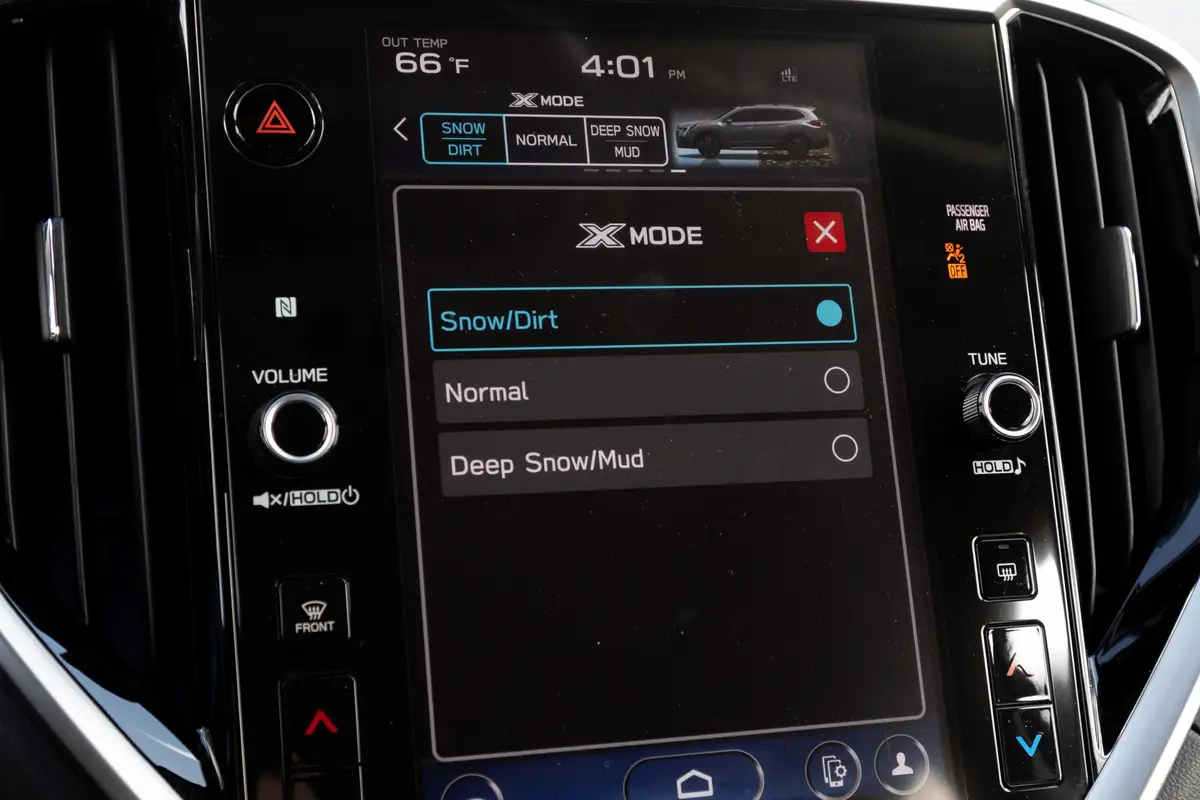
1. Peppy Powertrain
With 260 horsepower and 277 pounds-feet of torque on tap, the Ascent’s turbocharged 2.4-liter four-cylinder engine is smaller than powertrains found in most competitors, but it has plenty of grunt to easily get this fully loaded three-row SUV up to speed. When properly equipped, the Ascent can tow 5,000 pounds, too.
2. Standard AWD
Like most other models from Subaru, AWD is standard on the Ascent, bringing the added traction and security many SUV buyers want for everyday driving. The Ascent also offers an X-Mode for added capability off-road. Even if you never leave the pavement, X-Mode can be helpful on roadways when the going gets rough.
3. Easy to Handle
A low beltline, relatively large glass area and high seating position make for good visibility to the front and sides, as is typical of Subaru SUVs. Combined with a smaller overall footprint than that of most competitors, the Ascent’s visibility also helps with maneuvering and parking.
4. Second-Row Amenities
Second-row passengers don’t get shorted on features, which include USB-A and USB-C outlets, as well as a standard household outlet for laptops and other small electronics. There’s even an available intercom system called Cabin Connect that allows those upfront to let passengers or kids know when things are getting a little loud in the back.
5. Competitively Priced
It’s worth noting that most of our gripes with the Ascent have to do with its smaller size. But what’s also notable is that with a sticker price of $49,931 (including destination), our tested Ascent checked in as the least expensive entry in our comparison test. For some buyers, a friendly price tag and those smaller dimensions may make the Ascent an ideal choice.
More From Cars.com:
- Video: Which 3-Row SUV Has the Most Cargo Space?
- How Do Car Seats Fit in a 2025 Subaru Ascent?
- Which Cars Under $40,000 Have Earned IIHS Top Safety Pick and NHTSA 5-Star Awards?
- Research the Subaru Ascent
- Find Your Next
What Do We Dislike About the Subaru Ascent?
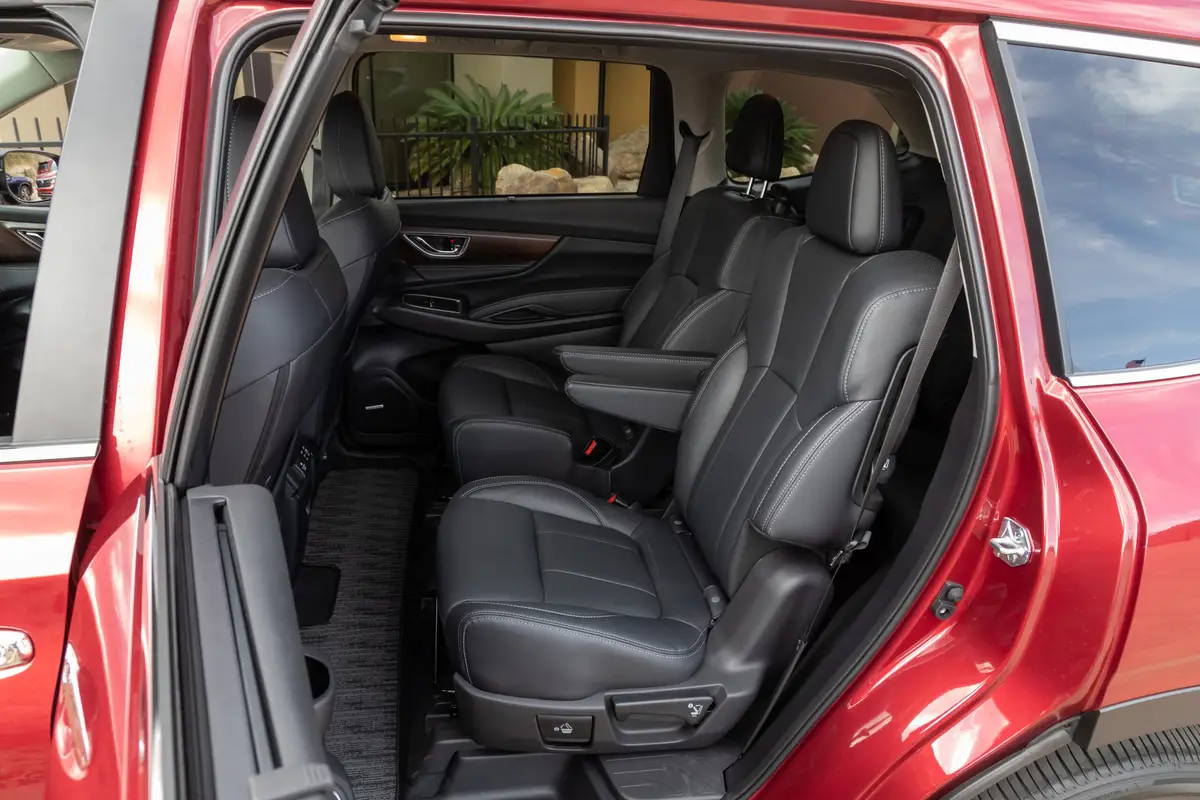
1. Limited Interior Room
While the Ascent is close to most competitors in terms of overall length, the cabin is around 2 inches narrower than average, making for a lot less usable room for passengers. The Ascent scored the lowest for seat comfort in all three rows in our comparison test, and while the first two rows can accommodate adults, there’s not a lot of room to spare. The third row is suitable only for kids, and there’s not a lot of storage room for small items anywhere in the cabin.
2. Frustrating Tech
Subaru uses the EyeSight suite of camera-based active-safety features, which takes its job quite seriously to the point that it can be an annoyance. Several drivers complained that the system’s lane departure assist and driver attention monitor were a little too aggressive with warnings, as was the collision warning system. Fortunately, the former two can be switched off, but doing so triggers a warning light that cannot be extinguished.
3. Middling Fuel Economy
The Ascent has the dubious distinction of having both one of the smallest engines in our three-row SUV comparison test and the worst observed fuel economy of the bunch. We recorded just 22.9 mpg in our real-world long-distance fuel-economy drive. That’s slightly better than the 22 mpg combined EPA estimate, but it still trails others in the category.
Related Video:
Cars.com’s Editorial department is your source for automotive news and reviews. In line with Cars.com’s long-standing ethics policy, editors and reviewers don’t accept gifts or free trips from automakers. The Editorial department is independent of Cars.com’s advertising, sales and sponsored content departments.
Featured stories
